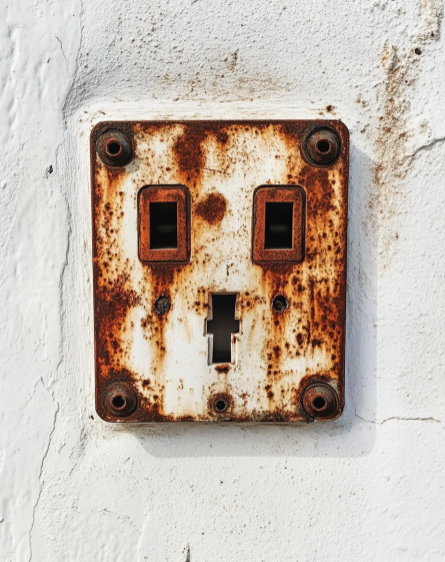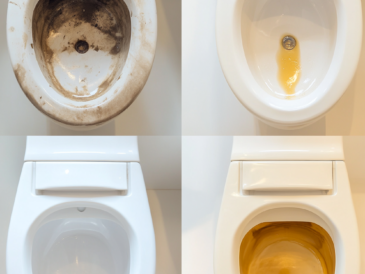In today’s world, electricity powers almost every aspect of our daily lives. From lighting and heating to appliances and gadgets, we rely on electrical outlets to function smoothly without much thought. However, there are times when our outlets signal potential danger, sometimes in the form of an unexpected fishy smell. This seemingly unrelated odor can be a red flag for a more serious issue: overheating and melting electrical outlets.
A Personal Story: Katie Rose Dugger’s Experience
Katie Rose Dugger, a mother, shared a cautionary tale on Facebook that has gained widespread attention. After repeatedly noticing a strange, fishy odor in her son’s bedroom, Katie cleaned every corner of the room, assuming the smell came from something organic. Yet, the odor persisted. It wasn’t until she did some research online that she discovered a shocking truth: melting electrical outlets could produce a fishy smell. A call to an electrician confirmed her fears—a loose wire was overheating, causing the outlet to melt. The entire outlet had to be replaced to prevent a fire hazard.
Katie’s experience highlights an essential but often overlooked safety concern: the fishy smell emanating from electrical outlets.
Part 1: The Hidden Dangers Behind That Fishy Smell
Imagine walking into a room and being hit with an unexpected fishy odor. You might dismiss it as a strange coincidence, but this smell could be your home’s way of telling you that something is wrong—particularly with your electrical system. While it might seem odd that an electrical problem would produce such a smell, it’s actually a well-known phenomenon in the world of home safety.
Why Does an Electrical Problem Smell Like Fish?
The fishy odor isn’t really from fish but from overheated plastic or electrical components within an outlet or wire. When an outlet begins to overheat, the heat causes the plastic insulation and surrounding materials to melt or burn. These materials emit an odor that people often describe as fishy. It’s an unpleasant smell and a critical warning sign of a much bigger problem: an electrical malfunction that could escalate into a fire.
Overloading and Heat Generation: The Root Cause
To understand why outlets might overheat, we need to explore how electrical systems work. Electrical outlets are designed to supply power to appliances and devices safely. However, when the demand on an outlet exceeds its capacity, it can cause an electrical overload. This excess current flow results in heat build-up, which can cause the outlet’s components—such as wiring, insulation, and the outlet itself—to melt or burn.
The heat that builds up during an overload may go unnoticed at first. But over time, as the outlet’s components degrade, the odor becomes more pronounced, signaling the danger. If left unchecked, the situation can worsen, leading to a potential electrical fire.
Common Causes of Overheated and Melting Outlets
Understanding the causes of electrical overloads can help prevent overheating. Here are some of the most common culprits:
- Overuse of Outlets: Plugging too many devices into a single outlet or using multiple power strips can cause the outlet to become overloaded, generating excess heat.
- Faulty or Poor Wiring: Incorrectly installed or damaged wiring can cause electrical currents to flow unevenly, creating heat and increasing the risk of melting outlets.
- Aging Electrical Systems: Older homes may have electrical systems that aren’t equipped to handle modern energy demands, leading to overloads and overheating.
- Faulty Appliances: Appliances that malfunction or draw more power than usual can overburden an outlet, causing it to overheat and melt.
Part 2: Preventing and Responding to Electrical Overheating
When it comes to electrical safety, prevention is the best course of action. Being aware of the warning signs, such as fishy smells or signs of outlet damage, can save you from more significant issues down the road. But what steps can you take to ensure that your home’s electrical system remains safe?
Prevention Tips for Electrical Overload
- Use Outlets Responsibly
Avoid plugging too many devices into a single outlet. Instead, distribute your devices across multiple outlets or use surge protectors with built-in overload protection. - Regularly Inspect Outlets
Take a proactive approach by routinely inspecting outlets for signs of wear, discoloration, or damage. If you see any discoloration or feel excessive heat coming from an outlet, it’s time to take action. - Ensure Appliances Are in Good Condition
Faulty or outdated appliances can strain electrical circuits. Keep your appliances in good working order, and if one starts to malfunction, either repair it immediately or replace it. - Upgrade Older Electrical Systems
If you live in an older home, consider having a licensed electrician evaluate your electrical system. Older wiring may not be designed to handle today’s power demands, which can lead to overheating and potential fire hazards. - Call a Professional When Needed
If you notice a fishy smell or signs of a melting outlet, turn off the power to that outlet immediately and contact a professional electrician. Do not ignore the smell or attempt DIY repairs, as this could worsen the situation.
Upgrading Your Electrical System: Is It Time?
Continue reading next Page, Just click page “2” below




